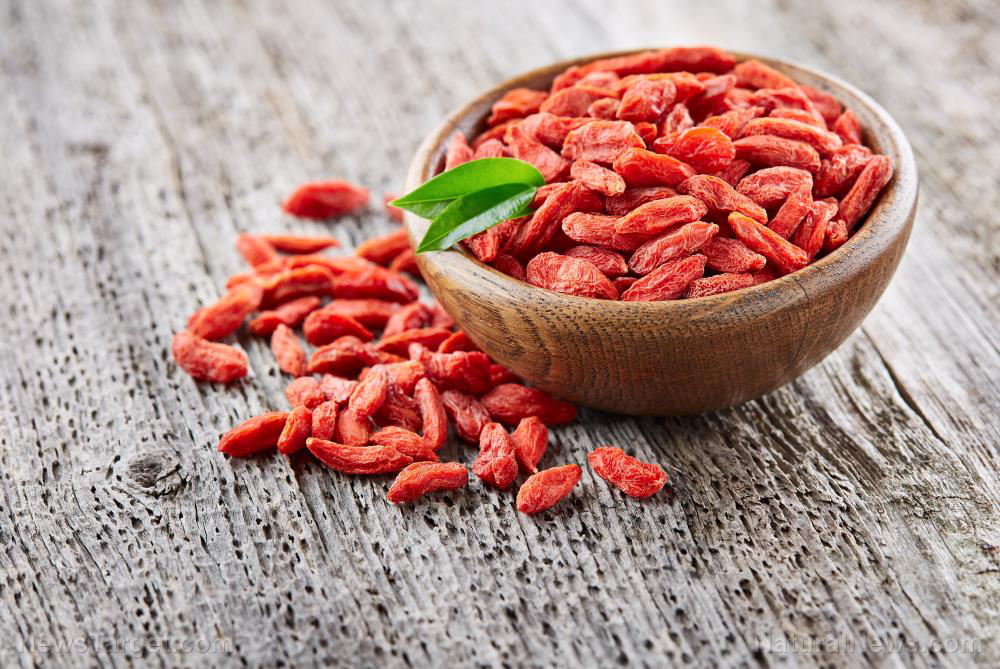Goji berry extract found to be an effective treatment for two deadly tropical diseases
09/16/2018 / By Zoey Sky

Goji berries, which are full of nutrients, are a popular remedy. According to a study, the brightly colored berries could also be used to treat two fatal tropical diseases.
The research was published in the European Journal of Medical Chemistry.
Can goji berries fight the parasites that cause fascioliasis and schistosomiasis?
The research centered around a new plant-based drug that may help cure life-threatening tropical diseases. The promising drug was created through a collaboration between Aberystwyth University and Cardiff University, two Welsh universities.
The research team, which was led by Professor Andrew Westwell from Cardiff University, developed a drug compound from the goji berry plant. The drug is active against the parasites that cause fascioliasis and schistosomiasis.
About 17 million people worldwide are currently infected with fascioliasis, with figures set to increase. Meanwhile, schistosomiasis, which isn’t as widely known, is the second most deadly human parasitic disease after malaria. At least 600 million people currently have schistosomiasis and the disease claims about 300,000 lives annually.
Schistosomiasis is spread by a waterborne parasite, while fascioliasis is spread by a foodborne parasite. Both of the diseases are treated with a single drug that’s widely administered to the population where the diseases are widespread.
Unfortunately, this kind of single treatment usually causes drug resistance, especially among those who are most susceptible to these diseases. To address this concern, the team of researchers worked together to develop the goji berry-based treatment.
Westwell from Cardiff University’s School of Pharmacy and Pharmaceutical Sciences explained that the research team is hopeful that the plant-based drug can be the key to providing “major health benefits for some of the world’s poorest people who are at risk of contracting schistosomiasis and fascioliasis.” (Related: Why goji berries might be the Holy Grail of health.)
The research was funded by the Welsh government’s Life Science Research Network of Wales. Meanwhile, the drug design was developed at Cardiff University’s School of Pharmacy and Pharmaceutical Sciences while its effectiveness took place at Aberystwyth University.
What are goji berries?
Touted for their various health benefits, goji berries, or wolfberries, were used as a medicinal plant in traditional Chinese medicine. The berries are used to treat eye, kidney, and liver-related health conditions.
The brightly colored red berries have a sweet and slightly sour taste. They are often sold dried, like raisins. Goji berries contain different vitamins and minerals, such as antioxidants, fiber, iron, vitamins A and C, and zinc.
Goji berries have all eight essential amino acids, which are isoleucine, leucine, lysine, methionine, phenylalanine, threonine, tryptophan, and valine. One four-ounce serving of the berries can provide you with at least 10 percent of your daily value for protein, which is a lot of protein for a fruit.
The berries contain complex carbohydrates that raise blood sugar levels slowly. This can minimize the risk of a sugar crash.
Goji berries are often sold in supermarkets dried and prepackaged. The berries are also sold fresh. You can eat them like raisins or fresh berries. Add them to breakfast cereal or yogurt, trail mix, or drink it as juice or tea. Consume at least two or more servings of goji berries daily to maximize their health benefits.
Goji berries may be expensive, but you need to purchase them from a reliable source. Cheaper or imported brands may contain sulfites that can cause an allergic reaction in some individuals.
The berries are considered generally safe for consumption, but you may experience mild digestive issues the first time you start eating them. This is a common side effect.
Consult a healthcare professional before eating goji berries, especially if you have chronic digestive or gastrointestinal issues.
You can learn more about the other health benefits of goji berries at Fruits.news.
Sources include:
Submit a correction >>
Tagged Under:
This article may contain statements that reflect the opinion of the author
RECENT NEWS & ARTICLES
COPYRIGHT © 2017 SUPER FOODS NEWS





















